Are UV Lights Up to the Job of Improving Your Indoor Air Quality?
Scientists use ultraviolet light to read hidden text in ancient manuscripts and decode their secrets Indiana Jones style as well as to discern the authenticity of gemstones and rare collectibles. Ultraviolet light is also used as an effective viricide, bactericide and germicide and is commonly used to pasteurize juice and purify drinking water. You can also include this potent tool in your home to protect and purify your indoor air by having UV lights installed near your air conditioner coil.
Air conditioners are subject to the growth of mold and mildew due to the fact that they generate regular condensation. Condensation occurs when you have a cold object, such as the air conditioner evaporator coils, come in contact with the warm, humid air that is being cycled through your A/C.
To prevent mold and mildew and reduce airborne allergens you should have ultraviolet lights, covering each side of the air conditioner coil, installed by a professional technician. A professional installer will ensure that the UV lights provide even coverage of the entire surface of the coil. You may also opt to install unltraviolet lights in the return air duct, so that the air can be treated over and over as it recycles though the system. This will inhibit mold and mildew growth, as well as fungus and particulates such as viruses and bacteria.
Some new technology available for homeowners interested in UV lights: automated UV systems that apply only as much light as needed, rather than running full power 24/7. This can reduce costs of running equipment by as much as 60 to 80 percent.
By utilizing the cleaning and disinfecting power of UV lights you can breathe easier year after year and know that your air conditioning unit will stay cleaner and keep your entire household healthier.
To learn more about how UV lights can protect your air conditioner and your air quality, contact Cox Air Conditioning & Heating at (727) 597-4456. We’re here to help and are happy to answer any questions you may have about air conditioning and how to protect the quality of your indoor air.
Are You Buying the Best Air Filter for Your System?

What Does an Air Filter Do?
Your HVAC air filter prevents dust and other particles from being pumped into your home’s air through your air conditioning or heating system. A good air filter will help keep your air clean and improve your home’s internal air quality. A number of factors contribute to indoor air quality, such as the health of your HVAC system, the number of pets in your home, level of dust and weather conditions in your area. The right filter can save you money on electricity and improve the air quality in your home by removing potentially harmful particles.
Different Types of Air Filters
According to the U. S. Environmental Protection Agency (EPA), there are four main types of filters, each of which offers different costs and benefits. The first is the fiberglass filter, which is layered to filter air and held together in a metal frame. Polyester and pleated filters tend to have better dust-blocking capabilities than their fiberglass counterparts. High-efficiency particulate arrestance (HEPA) filters take out 99.7 percent of all particles. Washable filters are less common but don’t have to be replaced.
Choosing the Right Filter
There are many factors that will help determine the best air filter for your system, such as the age of your HVAC system, if you have pets, how many people live in your home and if you have allergy sufferers at home. The type of filter you need also depends on the size of your home, the length of time the HVAC system has been in use and the weather in your area. A professional can tell you which filters are best suited to your needs by taking a look at the condition of your HVAC system. Generally, if the filter is damp, dusty or moldy, this likely signals a need for replacement. Frequently worn out filters could also mean that your current filter is not working well, and you may need to upgrade or switch to a different filter type.
Filter Maintenance and Replacement
Experts recommend checking air filters once a month. You should also have your filters looked at by a professional twice a year or more frequently if you use your system a lot. The wrong filter will be less effective, and it will need to be replaced more frequently. The wrong filter can also damage other parts of your system, such as heating coils and fans. Properly maintaining filters will help keep your system running cleanly and increase the life of the system and its parts.
Why You Should Upgrade Filters
Hire a professional to ensure you have the best filter for your needs. The correct filter will not need to be replaced as often, and it will increase the life of your system by helping to protect its vital parts. Poor indoor air quality can be a big environmental and health risk for your family. Unfiltered air can compound problems with allergies and respiratory illness. Installing better filters will reduce pollutants in your air and may save you money on electric bills through increased energy efficiency.
At Cox Heating & Air Conditioning, we have a professional, well-trained staff who will simplify the process and give you the high-quality service and attention you deserve. Contact our team of skilled technicians today so we can help ensure your home is safe and comfortable.
5 Benefits of a Whole House Air Purifier
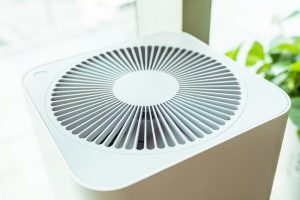
Here are five key benefits of installing an air purifying system.
1. Improved Health
Poor indoor air quality can contribute to a whole host of uncomfortable and even serious health issues. You may notice headaches, fatigue and dry, irritated eyes, nose, throat and skin. Children, seniors and people with allergies or asthma are particularly vulnerable. A whole house air purifier can drastically help by trapping pollutants such as smoke, pollen, fungus, mold spores, viruses, bacteria and animal dander. Many systems can trap and kill 95 percent of pathogens.
2. Excellent Odor Control
No matter how frequently homeowners vacuum, mop and wipe down surfaces, there’s no doubt that houses tend to harbor various odors. Perhaps a friend or family member smokes, or maybe you notice lingering pet odors. Even strong cooking smells (such as onions, bacon or fish) can become annoying over time. Air fresheners only mask the problem, but a whole house air purifier will actually remove these odors so you can enjoy fresh and clean air.
3. A Longer-Lasting HVAC System
Your heating and cooling system won’t last forever. However, in an ideal situation, you’d like yours to last as long as possible. Fortunately, whole house air purifiers will actually prolong the life of your HVAC system. Because purifiers reduce dust, dander and other particles in your home’s air, your HVAC won’t encounter nearly as many of these, so it will stay cleaner, perform more effectively and last longer.
4. Convenience and Simplicity
One major benefit of a whole house air purifier is its simplicity. Rather than adding portable air filters that can only clean the air in a room or two at one time, a whole house system can tackle your entire home. With fewer units to purchase and fewer filters to change, a whole home unit is a convenient (and cost-effective) choice.
5. Quiet and Discreet
Last (but certainly not least) is the fact that whole house air purifying systems are surprisingly discreet. While you may envision a large unit whirring away as it cleans and freshens the air in your home, the truth is that you won’t see or hear your air purifier; you’ll simply enjoy the knowledge that it’s working to improve your home’s air quality.
Investing in a whole house air purifier is a great way to improve your family’s health and comfort. Particularly as the muggy Florida summer approaches, you’ll enjoy the peace of mind of knowing your home is a cool and healthy retreat from the hot sun. To learn more about how to improve air quality in your home or schedule a service appointment, contact Cox Heating & Air Conditioning today and let us help meet your indoor air quality needs.
Choose the Right Air Filter for Your Home
If you’re not familiar with air filters, you are not alone. Though important, they are a frequently overlooked part of your HVAC system. Below, we’ve compiled some information about what air filters are, what they do for your home and how you can choose the right one.
What Do Air Filters Do?
The air filter in your household heating and cooling system helps keep the air in your home clean and free of dust and other nasty particles. Internal air quality in your home can vary greatly depending on a number of factors, such as the health of your home air system, pets, level of dust and weather conditions in your area. The right filter can save you money on electricity and improve the air quality in your home.
Different Types of Air Filters
Four types of filters are found frequently in home HVAC systems. The first is the fiberglass filter, which is layered to filter air and held in a metal frame. Polyester and pleated filters have the same basic design but tend to feature better dust-blocking capabilities than their fiberglass counterparts. High-efficiency particulate arrestance (HEPA) filters take out 99.7 percent of all particles. Washable filters are less common but don’t have to be replaced.
Filter Maintenance and Replacement
You should check your air filters once a month and have a professional look at them twice a year. If the filter is damp, dusty or moldy, it’s time for a new filter. But it could also mean that your current filter is not doing a good enough job for your system. Properly maintaining filters will help keep your system running cleanly, but if you aren’t using the right kind of filter, you may have to replace them more often. Using improper air filters can even cause damage to other parts of your system, such as heating coils and fans, if they are not collecting enough of the particles in the air.
Choosing the Right Filter
The type of filter you need depends on the size of your home, the length of use and the weather in your area. If you have a large family, pets or people with allergies in your home, you may need even stronger filters. A professional can tell you which filters are best-suited to your needs by taking a look at the condition of your central air system.
Why You Should Upgrade Filters
Indoor air quality affects your health and your comfort. Poor indoor air quality can be an environmental risk, compounding problems with allergies and respiratory illness. Hiring a professional to check out your air filters ensures that you have the right fit, which means you will have to replace filters less often and your home air system will last longer. Getting better filters will reduce pollutants in your air and save you money on electric bill through increased energy efficiency.
If you want to hire a pro to simplify the process, look no further than Cox Heating & Air Conditioning. We can help make your home cheaper to maintain, safer and more comfortable.
How a Dirty Air Filter Can Wreak Havoc
When everything is running smoothly, it’s easy to forget about the small things that can make a big difference, like a dirty air filter. Neglecting this one small step can lead to a variety of issues with your HVAC system.
According to the International Association of Certified Home Inspectors (InterNACHI), you should change your air filter at least every three months to avoid having any issues in your home and to keep your system running at maximum efficiency.
Here are some problems that can arise with a dirty air filter:
Poor Air Quality
If your filters are not clean, that means your system is pumping dirty air throughout your home, increasing the amount of dust and allergens you are breathing into your body. This can manifest itself in physical form via headaches, colds, chest pain and other allergic reactions. Cleaning your air filter could make you feel a whole lot better.
Reduced Air Flow
HVAC units are designed to have a certain amount of internal air flow, and a dirty air filter reduces the amount of air that gets to you and the system. If your home doesn’t feel as warm or as cool as the temperature settings would suggest, the air filter could be the culprit.
Damage to the System
When filters become clogged with air, it can lead to lead to a pressure drop that doesn’t allow any air infiltration at all. In addition, a filter exposed to condensation can become moldy. Both issues can have serious consequences for your HVAC system and could lead to costly repairs or a full replacement of the unit.
Increased Electric Bills
A dirty air filter will cause your system to work harder to get to your desired temperature, which in turn, will cause a spike in power usage. The U.S. Department of Energy says that replacing a dirty, clogged filter with a clean one can lower your air conditioner’s energy consumption by 5 percent to 15 percent.
Having clean air filters is one easy step you can take to keep your HVAC system running well. If you have pets or a large family, you may want to consider changing your filters more frequently to ensure your indoor air quality stays high and your utility bills stay lower.
Is an Air Purifier the Solution to Seasonal Allergies?
When summer changes to fall, many allergy sufferers find their symptoms worsen, even indoors. At home, air conditioners aren’t needed, and people with allergies lose the benefit of cool, low-humidity indoor air. At the same time, allergens like pollen from fall-flowering plants and mold spores can drift in through open windows and doors. Consequently, the change of season can be one of the best times to install an air purifier.
Seasonal Allergy Triggers
The number of allergy-triggering particles in the air can rise when the seasons change. Allergy sufferers are sensitive to a range of allergens like pollen, mold spores, pet dander, dust and dust mites. Ragweed pollen is one of the most common allergy triggers, and the plant is fall-flowering. Another common cause of seasonal allergies is a mold that grows on dead leaves in summer and fall. These allergens enter homes and contaminate indoor air, triggering allergy attacks.
What’s more, family habits change along with the seasons. If your dog or cat spends more time indoors, the amount of pet dander rises, and more people at home means more dust and more dust mites.
How Air Purifiers Help Allergy Sufferers
Air purifiers filter the microscopic particles from indoor air that trigger allergy attacks. Air is drawn into the machine and passes through a filter, and the purifier expels the filtered air. A portable air purifier only treats one room, but HVAC air filters treat the whole house. However, only air purifiers fitted with filters that score higher than 14 on the MERV (Minimum Efficiency Reporting Value) scale remove the pollens, mold spores and other allergens that pollute indoor air. To effectively clean the air for your entire household, you need an HVAC system fitted with a HEPA (High Efficiency Particulate Air) filter, which removes 99.97 percent of indoor air particles. These top-quality air filters also remove harmful pathogens like bacteria.
Installing an Air Purifier
A portable air purifier may seem the most convenient solution to allergens in indoor air, but installing an HVAC air filter is the most efficient and effective option. Fitting a HEPA filter into an HVAC system isn’t simple, however. To provide the required pressure of air for the filter to work, it must be installed into a separate HEPA system, and that’s a job for a professional. After installation, the filter must be changed regularly to maintain the indoor air quality.
Breathing fresh, clean air at home is a pleasure, and for allergy sufferers it’s essential if they want to avoid attacks of wheezing, sniffles, coughs and worse. Air purifiers can remove the allergens that appear in indoor air when the seasons change.
If you’d like more information on installing an air purifier in your home, contact Cox Heating and Air Conditioning today and let our professional contractors help you decide which home air filter is best for your needs.
Maintaining Your Home Air Quality Through the Hot Summer Months
The EPA reports that the average American spends about 90 percent of his or her time indoors. In addition, indoor air quality is among the top five environmental risks to health — it can be up to five times more polluted than outdoor air. Summer heat and humidity can negatively impact indoor air quality, too. It sounds a bit frightening, but worry not. Here’s how to keep your home’s indoor air safe this summer as you beat Tampa’s heat in the cool A/C.
Air Filtration
Volatile organic compounds (VOCs) are airborne chemicals that can be hazardous to your health and the environment. They’re year-round concerns, but even more so in the summer when the heat disperses them widely. VOCs are emitted as gases from certain solids/liquids, and levels can be up to 10 times higher indoors that outside — many household items emit VOCs. VOCs can also get into your living space through open windows or ventilation systems. In the summer, the main culprits are:
- Pesticides
- Fertilizers
- Insect repellants
- Gas mower exhaust
The list of health impacts is long, from headaches to cancer. To reduce the impact of VOCs, you need a proper indoor air filtration system. Whole-house air filters clarify air through your home’s HVAC system. The type of air filter matters; look for a MERV rating (which indicates overall effectiveness at trapping particles) of 16 or higher to remove chemicals from the air.
Ventilation
The longer air remains in a home, the longer the pollutants also stay. The air exchange rate (ACH) is the number of times outdoor air replaces indoor air per hour. It can tell you how well your home is ventilated; the lower the ACH, the lower the indoor air quality typically is.
To improve your home’s ACH, improve ventilation. Simply opening a window won’t get you the ventilation needed, especially in summer; you’ll need a mechanical ventilation system that circulates fresh air using ducts and fans. Ventilation systems can improve air quality and your comfort. Balanced-type systems reduce the moisture content of incoming air, and supply-type systems both cool and dehumidify outdoor air before it enters your home.
Dehumidifiers
In summer, the relative humidity in your home can rise. This creates condensation on air-conditioned surfaces and dampness in attics as warm air rises and cooler air sinks. High levels of relative humidity can cause health problems, discomfort and a less-hygienic atmosphere.
An indoor relative humidity level of 60 percent or more can also lead to problems like mildew and mold. Ideal indoor relative humidity levels should remain between 20 and 60 percent.
Using a dehumidifier will not only remove humidity, but it’ll also keep your home at a more comfortable temperature — particularly in the summer.
Are you ready for summer’s heat? The professionals at Cox Heating and Air Conditioning have the latest technology for indoor air filtration and can help ensure your Tampa-area home stays comfortable. Contact the HVAC experts at Cox today.
How Often to Change Indoor Air Filters and When it’s a Good Idea to Have a Professional Duct Cleaning
The central air conditioning system in your home plays a major role in the health and comfort of you and your family. An inefficient system or clogged air filter can affect the quality of the air you breathe in daily, causing health problems or exacerbating existing health conditions like asthma or allergies.
Especially during the warmer months, your central air conditioning system is constantly pushing air through your home, and the system that air passes through should be clean and well maintained. A dirty air filter, or a clogged or moldy duct system can create problems like higher utility bills and reduced air flow. It’s important to change indoor air filters regularly and maintain your duct system by scheduling necessary check-ups with AC service Tampa experts.
Type Matters
There are a variety of indoor air filters that homeowners can purchase depending on needs and budget. Criteria like material, thickness, and form all affect how often an indoor air filter should be changed. For example, a flat fiberglass filter should be changed monthly, a one pleated filter every two to three months, and more high-efficiency filter up to six months or longer.
As a rule of thumb, most filters with an average of 1 inch to 3 inches in thickness should be monitored monthly and replaced if they appear dirty, no matter how long they’ve been in use.
Special Concerns
Beyond the type, other factors that indicate how often to change your indoor air filter include:
- Number of people living in your home
- If you have house pets
- If anyone suffers from allergies, asthma or other related health conditions
- If there are smokers in the home
All of these criteria can affect how often any type of filter needs replacing. However; if you need
Professional Duct Cleaning
Routine cleaning of your central air conditioning duct system is not required, but a cleaning by AC service Tampa professionals may improve the efficiency of your system, resulting in longer operation life, energy savings, and lowered cost of overall maintenance.
Most people schedule a professional duct cleaning when there’s a problem, for example:
- Suspected mold (either visible or not)
- Rodent or insect infestation
- Dust and debris clog
Conditions like mold are dangerous and should only be handled by a professional that can clean out and replace contaminated parts.
Conclusion
Taking care of your home’s central air conditioning system by changing air filters regularly and having your ducts cleaned when needed can affect your health, save you money on energy costs, and extend the life of your heating and cooling system. In fact, the U.S. Department of Energy says that replacing a dirty filter with a clean one can lower your air conditioner’s energy consumption by 5 to 10 percent.
For general service and advice, contact the experts at Cox Heating and Air Conditioning. They have experience dealing with all types of heating and cooling systems and can help you maintain your duct system year-round. Call the AC service Tampa experts today at Cox Heating and Air Conditioning for information on how to ensure your central air conditioning system works at optimal performance.
Indoor Air Filtration Alleviates Seasonal Allergy Symptoms
If you’re a seasonal allergy sufferer, you know the daily struggle to prevent the myriad symptoms allergies can cause. They’re a problem for many Americans — pollen allergy is one of the most common chronic diseases in the United States.
Seasonal culprits like pollen begin showing up as early as March in the southern United States. If you’re dreading the arrival of spring, indoor air filtration and HVAC installation can play an important role in preventing or mitigating seasonal allergy symptoms.
Indoor Filtration Options
There are two primary ways to filter the air in your home. Whole-house filters clean the air using filters built into the return-air ductwork of existing HVAC systems. They’re easy to maintain, purify the air in your entire house and accept a wide variety of filter materials. Portable air filters use small fans to push air through a filter and are designed to clean one room. They’re not as efficient as whole-house options but work to target specific spaces when HVAC installation isn’t an option.
Types of Filters
Pollen and dust cause most seasonal allergies. Pollen particles can range from 10 to 100 microns in size, while dust ranges from 0.5 to 5 microns. Not all filters can capture particles of these sizes.
HVAC systems commonly use mechanical air filters made of synthetic fibers that trap particles. The filters’ effectiveness is measured as a Minimum Efficiency Reporting Value, or MERV rating. The lower the MERV, the poorer the filter quality. For seasonal allergies, these disposable filters are affordable and efficient:
- Pleated: MERV rating of 10–13 or 14–16 for high efficiency. Electrostatically charged pleated filters attract allergens like pollen.
- HEPA: removes up to 99.97 percent of all particles; MERV rating of 17–20.
Portable air cleaners’ effectiveness is measured by clean air delivery rate, or CADR. Many portable air cleaners don’t have high enough CADR values to remove large pollen particles. Look for these filters if you use a portable device:
- HEPA: removes up to 99.97 percent of air pollutants as small as 0.3 microns.
- Electrostatic charged: uses tightly woven electrostatically charged fibers; effective at trapping small particles like dust, mildew and pollen.
Silver ion and activated carbon filters are designed to remove harmful bacteria, not irritants like pollen.
The Best Option
If you’re looking for indoor air filtration for seasonal allergies, a whole-house filtration system with a high-efficiency furnace filter is the best choice. Adding a portable air filter while you sleep may also alleviate symptoms. The most important thing to remember is to change your HVAC system’s filter every 6–12 months.
Proper HVAC installation and maintenance are essential for effective indoor air filtration. HVAC professionals at Cox Heating and Air Conditioning can help you choose the right filter for your HVAC system and educate you on regular filter changes. Don’t suffer this spring; call the air-filtration experts at Cox Heating and Air Conditioning to take control of your indoor air quality today.
Central Air Conditioning Tips for Springtime in Florida
Springtime in Florida is a beautiful time of year. Nighttime temperatures are cool enough to wear a light sweater, but the afternoons are warm enough to enjoy the beach. In fact, weather extremes are not uncommon in March, April and May. One day, you might leave all your home’s windows open, and the next you need to run the air conditioner nonstop. Here are a few tips for making the most of your central air conditioning during springtime in Florida.
Get a Semi-annual Tune-up
Although the afternoon temps in spring don’t usually reach the blistering highs of summer, the rising mercury should be a reminder of what’s coming. Now is the time to make sure your central air conditioning unit is ready for heavy-duty use. Routine maintenance by an AC service Tampa provider improves the air conditioner’s efficiency and extends the life of the unit. A tune-up should include a check of the refrigerant levels, electrical components, controls, filters and condenser as well as coil cleaning, filter replacement and thermostat calibration.
Change Your Filters
Winter in Florida is mild compared to other parts of the country, but Floridians still turn on the heat. The changing weather is a great reminder to replace the filters in the central air conditioning unit. Dirty filters force the air conditioner to work harder than it should and reduce the quality of the air inside the home. For even greater protection, replace standard filters with HEPA filters that trap indoor allergens like pet dander, dust mites, and tobacco smoke, which can aggravate allergies.
Use the Air Conditioner to Combat Allergies
Spring is peak season for pine, oak and weed pollen, which wreak havoc on allergy sufferers who want to enjoy the seasonal weather. To reduce allergy attacks, keep the windows closed during the day — especially when the March winds pick up — and turn on the air conditioner. You can open the windows at night when the pollen counts are lower. This is also a good time to speak with an AC service Tampa technician about installing an air purifier that reduces the allergens in the air.
We Want to Help You
Cox Heating & Air Conditioning is a top AC service Tampa provider, and we offer a full range of air conditioning repair and installation services so you stay comfortable year round in Florida. To learn more about how we can help you take care of your air conditioner this spring and prepare for summer, call us at 727-442-6158 or fill out our contact form.




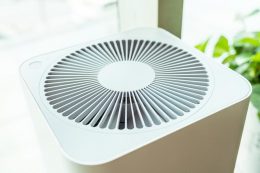
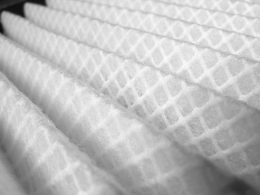
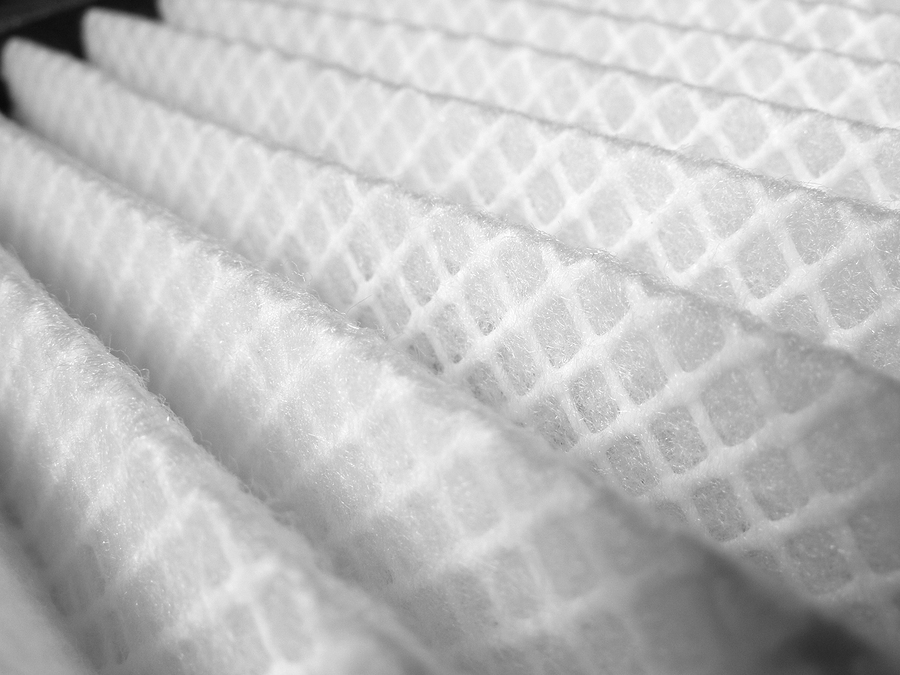
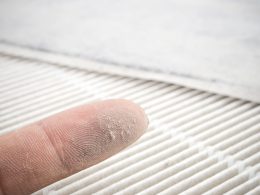
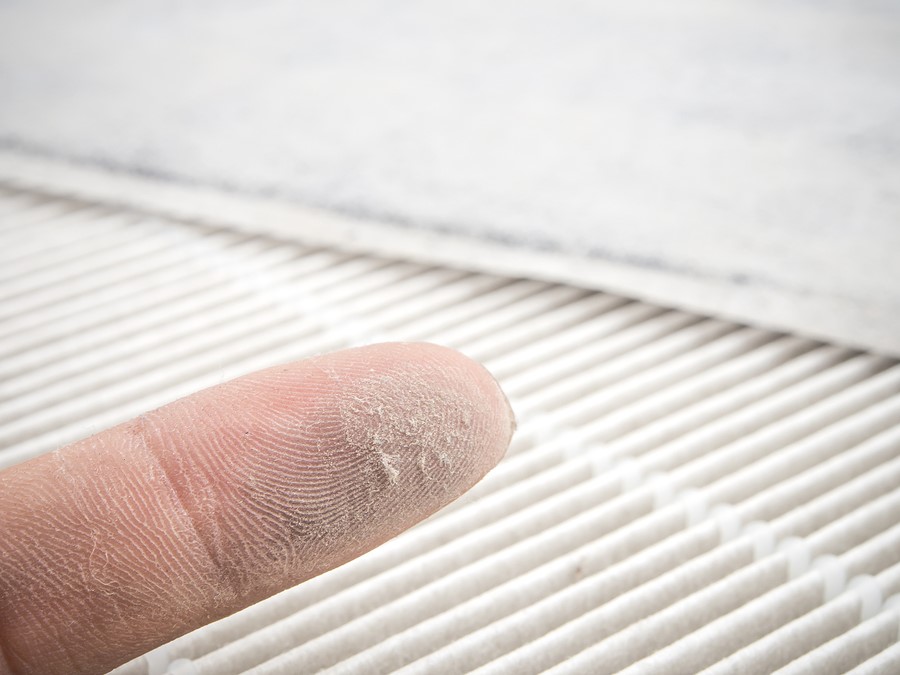



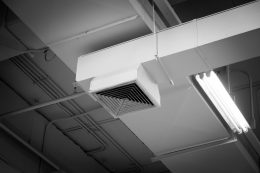
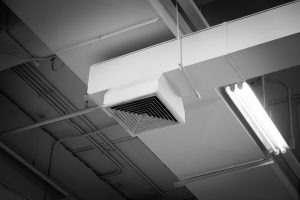





Recent Comments